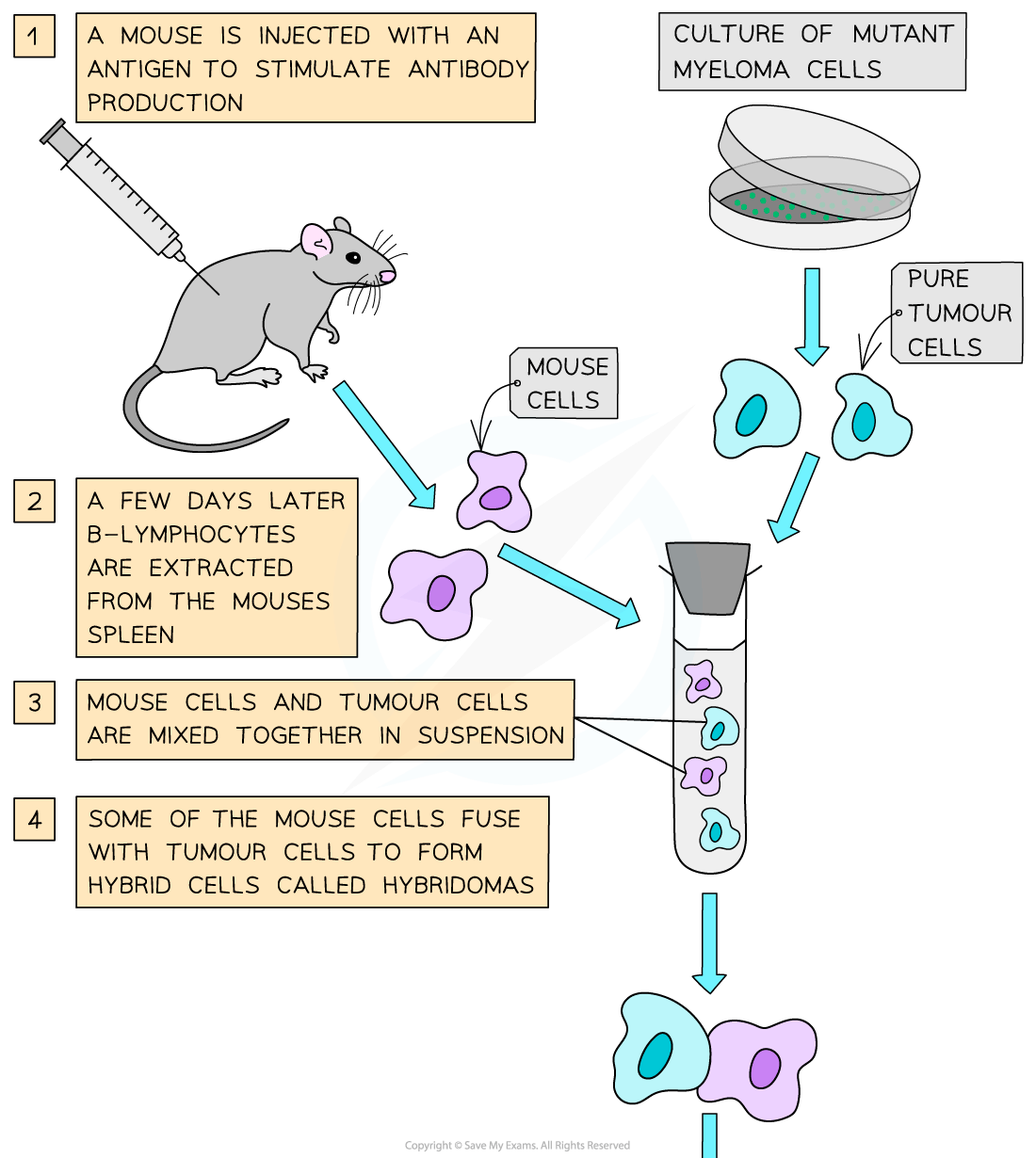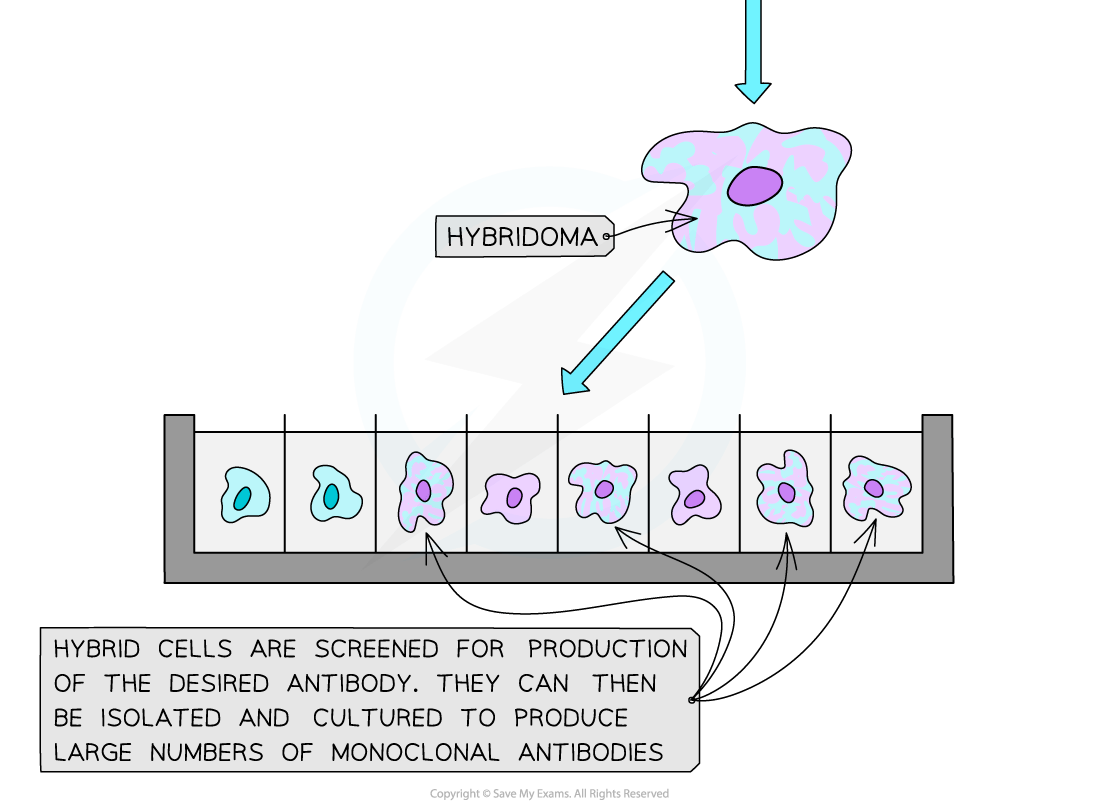Making Monoclonal Antibodies (Cambridge (CIE) AS Biology): Revision Note
Exam code: 9700
The hybridoma method
Monoclonal antibodies (mAbs) are artificially produced antibodies produced from a single B cell clone
Monoclonal antibodies bind to antigens in the same way as naturally produced antibodies
The hybridoma method is used to make monoclonal antibodies
The method enables large quantities of identical antibodies to be produced
The hybridoma method fuses plasma cells with tumour cells, combining their useful properties
Plasma cells can produce antibodies
Tumour cells can divide indefinitely by mitosis and produce more identical cells
The hybridoma method involves the following stages
Mice are injected with an antigen that stimulates the production of antibody-producing plasma cells
Isolated plasma cells from the mice are fused with immortal tumour cells, producing hybridoma cells
The fusion of plasma and tumour cells can be assisted with the use of fusogens such as polyethylene glycol or an electric current
These hybrid cells are grown in a selective growth medium and screened for the production of the desired antibody
They are then cultured to produce large numbers of monoclonal antibodies
Monoclonal antibodies have multiple applications, including diagnostics, treating disease, food safety testing and pregnancy testing



Unlock more, it's free!
Did this page help you?